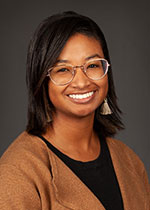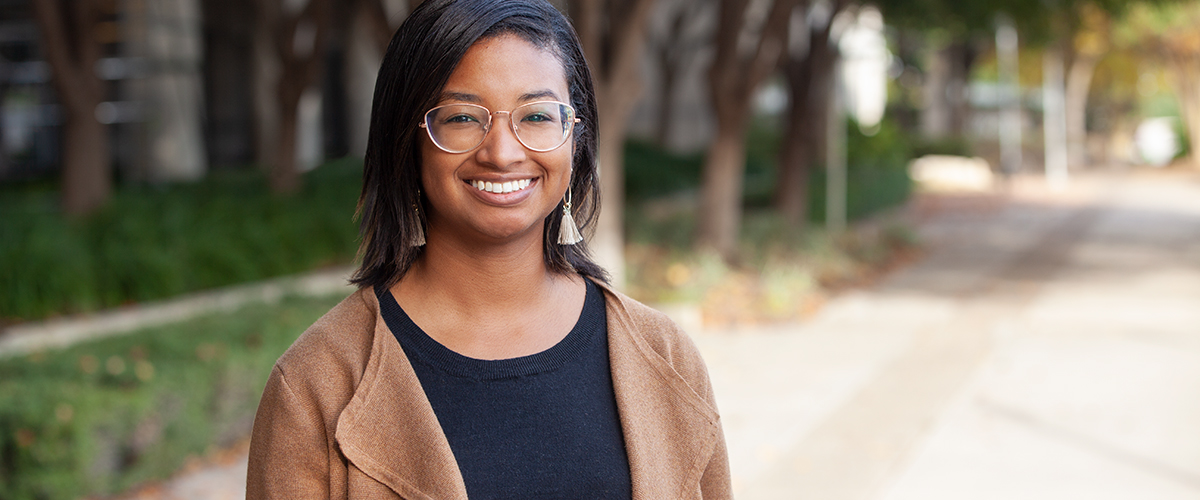As the new graduate intern with the Trellis Foundation, there are several things I’m looking forward to learning and experiencing. My background in school psychology and an interest in higher education policy have led me on a winding academic and professional journey. Through this journey, I found my true passions within education.
My higher education story starts at The Ohio State University, where I received a bachelor’s degree in Psychology and a master’s degree in School Psychology. I gravitated to the field of school psychology because I wanted to advocate for children with disabilities. I was able to complete my field work in Columbus City Schools, where I was the school psychologist at an elementary school.
However, it was my time as a graduate assistant in the Disability Services Office at Ohio State where I became invigorated by my work. I worked directly with college students who needed academic accommodations due to a disability. I loved this work so much that I took on a full-time position as a Student Accessibility Specialist at Trinity University after finishing my master’s degree. In this role, I primarily created accommodation plans for students who identified as having a disability. With Trinity University being a smaller, liberal arts campus, I was able to experience the ins and outs of how universities functioned, and I knew I wanted higher education to be the focus of my career trajectory. This interest drove my decision to enter the PhD program in Educational Leadership and Policy at The University of Texas at San Antonio (UTSA) in 2017.
As a PhD student at UTSA, I have been surrounded by academic research that attempts to understand why students have difficulty enrolling in and graduating from college. While this research is insightful, I was always curious about the policies that may help or hinder students trying to access a college education. My passion for higher education policy has led to a variety of opportunities, including my internship with the Trellis Foundation.
Attending UTSA, a Hispanic Serving Institution, has been an insightful experience for me, opening my eyes to how Minority Serving Institutions (MSIs) serve underrepresented students in higher education. Currently, there are about 700 MSIs across the country, which educate nearly 30 percent of all U.S. undergraduates and 40 percent of all students of color.
Seeing firsthand how an MSI can improve the educational and socioeconomic outcomes for underrepresented students, I was inspired to learn more about how MSIs fare in the current higher education environment. Specifically, I have been interested in a more recent type of designation—Predominantly Black Institutions (PBIs). Different than Historically Black Colleges and Universities, PBIs do not have a historical mission of enrolling Black students. Rather, PBIs are designated as MSIs for simply enrolling a high percentage of Black students. This difference may seem small, but it can impact how these institutions serve their students. This interest directly connects with the initiatives of Trellis Company’s Student Success Support services.
I am excited to be working with Trellis Foundation, as I will be able to see firsthand how philanthropy continues to have a role in improving higher education for all students. I look forward to seeing the work we do in the months ahead!
About the Author

Ms. Gray Parker is currently a third-year Ph.D. student at The University of Texas at San Antonio in Educational Leadership and Policy, with an emphasis in higher education. Her current research interests include higher education policy, access, equity, and affordability issues, and understanding how special-mission institutions such as minority-serving institutions and land-grant universities have a role in the success of underrepresented student populations. Previously, Ms. Gray Parker interned at the Lumina Foundation as a policy intern through the Archer Fellowship program and as an accessibility specialist at Trinity University (San Antonio, TX).
She earned her bachelors of arts degree in psychology and master’s degree in school psychology from The Ohio State University.

